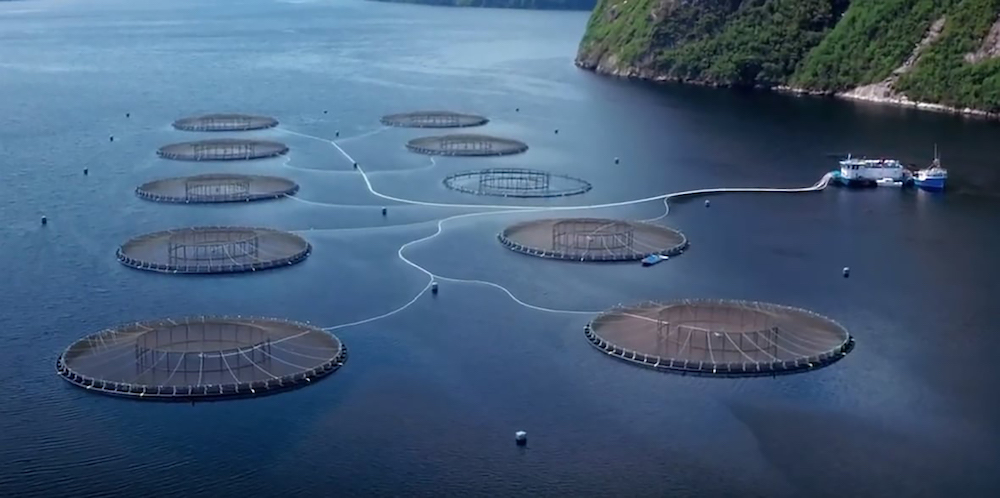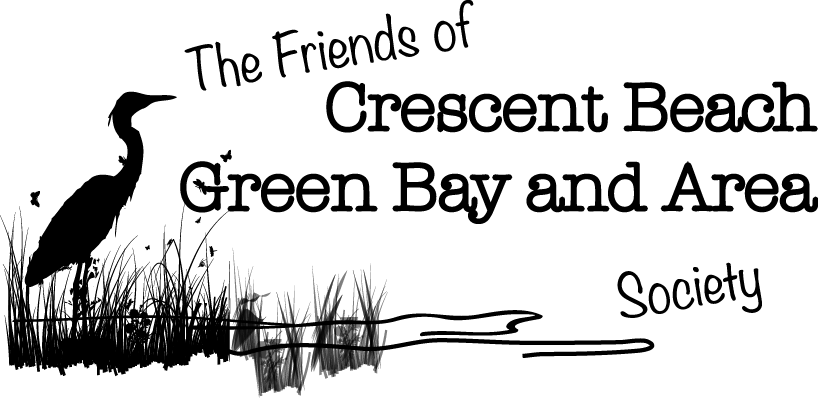
More and more countries are prohibiting open pen fish farms because they are so destructive to the environment. The Friends of Crescent Beach Green Bay and Area Society is taking action to keep open pen fish farms out of Nova Scotian waters.
The following is the content of the mail out which was sent to our members
March 20, 2020
Dear Residents
Fish farmed in pens open to the sea are diseased fish.
Disease and infestation with parasites like sea lice cannot be avoided when 50,000 fish are crowded into a two acre area. In order to maintain a semblance of “health”, to keep them marketable, the fish are regularly fed a concoction of chemicals to control the build up of bacteria, sea lice, viruses, and microbes. Anti-fouling agents like copper inhibit the growth of algae on the structure of the pen. These chemicals and heavy metals, along with fish faeces are not confined to the pens. A 200,000-fish salmon farm releases faecal matter equivalent to a city of 65,000 people. This sludge, which can build up to depths of several feet under the pen, and inevitably migrates into the surrounding sea, is lethal to the natural life around the pen.
For example, a research paper prepared by Dalhousie University found adult lobster catches dropped 42 per cent in Port Mouton Bay, N.S. when open-pen fish farms were operating.To put this in perspective, imagine what would happen to an ocean bay if a farmer dumped the manure from his pig pens in the sea day after day. Enclosed on-land fish farms eliminate most of the problems inherent in the pens in our ocean bays. There is one reason why the fish farming industry prefers the ocean: it’s cheaper. Open pen fish farms pay no real estate taxes and take advantage of ocean currents to deliver oxygen to the fish and also rely on the ocean to, only theoretically, flush away faecal matter, chemicals, and uneaten food pellets. Norway, the birthplace of open pen fish farms, has stopped the development of open pen fish farming by making licensing fees prohibitively high while completely eliminating fees for land based farms. Denmark has halted open pen farming and, in this country the federal government is phasing out open pens on the West Coast. In each case environmental concerns are cited as a the primary reason to prohibit these farms.
And Nova Scotia?
“Open pen fish farms already exist in the province, have for decades, and they will in the future.” said Keith Coldwell Nova Scotia’s Minister of of Agriculture and Minister of Fisheries and Aquaculture as he welcomed Cermaq Canada with options to lease locations along the Nova Scotia Coast for the creation of up to 20 open pen fish farms.
In 2019 the Nova Scotia Government gave Cermaq until March 2020 to explore five locations along our shores to expand their operation: Mahone Bay, St. Margarets Bay, St. Marys Bay, and two sites in Chedabucto Bay. Because of the resistance to open pen fish farms in these areas, Cermaq was given an extension of six months “to consult with the communities”. Assuming that strong opposition in these communities continues,can we expect Cermaq to request lease options in other areas? The mouth of the LaHave River? Dublin Bay? Green Bay?
The Canadian operation is part of Cermaq Global of Norway. Cermaq Global is a wholly owned subsidiary of Mitsubishi, a Japanese multinational that will reap the lion’s share of the profits. With more and more countries putting a stop to open pen fish farming, Cermaq is looking for governments around the world that are willing to overlook environmental damage in exchange for a handful of jobs and a very limited boost to local economies.
It seems that the McNeil government is at the top of Cermaq’s list.
Please let local representatives know how you feel about open pen fish farms along our coast.
‣ Prov. Minister of Fisheries Hon Keith Colwell MINDFA@novascotia.ca
‣ Federal Minister of Fisheries Hon. Bernadette Jordan min@dfo-mpo.gc.ca
‣ Premier Stephen McNeil Premier@novascotia.ca
‣ MLA Lunenburg Queens Suzanne Lohnes-Croft lunenburgmla@eastlink.ca
‣ Deputy Major and Councilor District 1 Eric Hustvedt eric.hustvedt@modl.ca
‣ Prov. Minister of Environment Hon.Gordon Wilson
minister.environment@novascotia.ca
Friends of Crescent Beach is hoping to organize a public meeting on this issue as soon as it is safely possible.Thank you,
Peter Barss, Lise Bell, Kirsten Ellis, Deanna Harlow, Paul Harlow, Dave Hughes, Jean McHarg, Bob Reynolds, Michael Robb, Peter Romkey, Andrea Witzke
| PDF of Letter sent to members of FOCB | |
| PDF Info Graphic Waste production |
